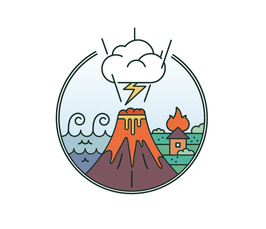Extreme events in biological, societal and earth systems
- Datum: 06.06.2019
- Uhrzeit: 14:00
- Vortragende(r): Huw Groucutt
- Max Planck Research Group Extreme Events
- Ort: MPI für Biogeochemie, Jena

Understanding extreme events such as abrupt climate change is of critical importance for the future direction of human societies. In this talk I will introduce the newly established Extreme Events Research Group, based at the Max Planck Institute for Chemical Ecology. This highly interdisciplinary group will explore the character and impacts of extreme events in different systems and at multiple scales. How do we define extreme events and, conversely, what constitutes a ‘normal’ condition in different systems? We will explore the connections between different systems and the complex nature of non-linear and cascading feedback mechanisms. The Extreme Events Research Group will study extreme events in diverse realms, from the extinction of dinosaurs to the nature of stock market collapses, via disease epidemics, floods, volcanoes and periods of rapid socio-political change. Do the same ‘rules’ apply in such diverse settings? This talk will focus on presenting questions rather than answers, and will describe and orientate a research programme to be conducted over the coming years. I will highlight how progress involves both ‘technical aspects’ (more data at higher resolution), but also questioning theoretical frameworks (such as the gradualism of classical Darwinism, the uniformitarian assumptions of traditional geology). In terms of the ‘palaeo’ side of this project I will explore how extreme events have shaped and guided human evolution and prehistory, and the lessons this has for the future. Key themes include the interlinked nature of extreme events and human societies (tsunamis may be natural occurrences, for instance, but millions of people living in coastal shanty towns without early warning systems reflects social, economic and political circumstances which determine the impact of such events) and a call to reorientate the study of human evolution from ‘climate’ to a more rounded environmental and ecological perspective.